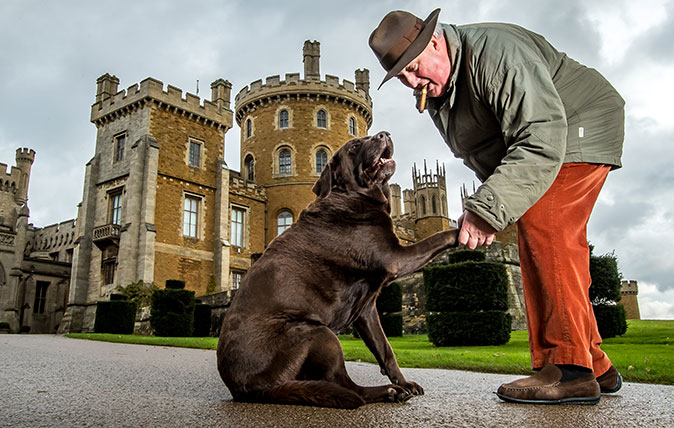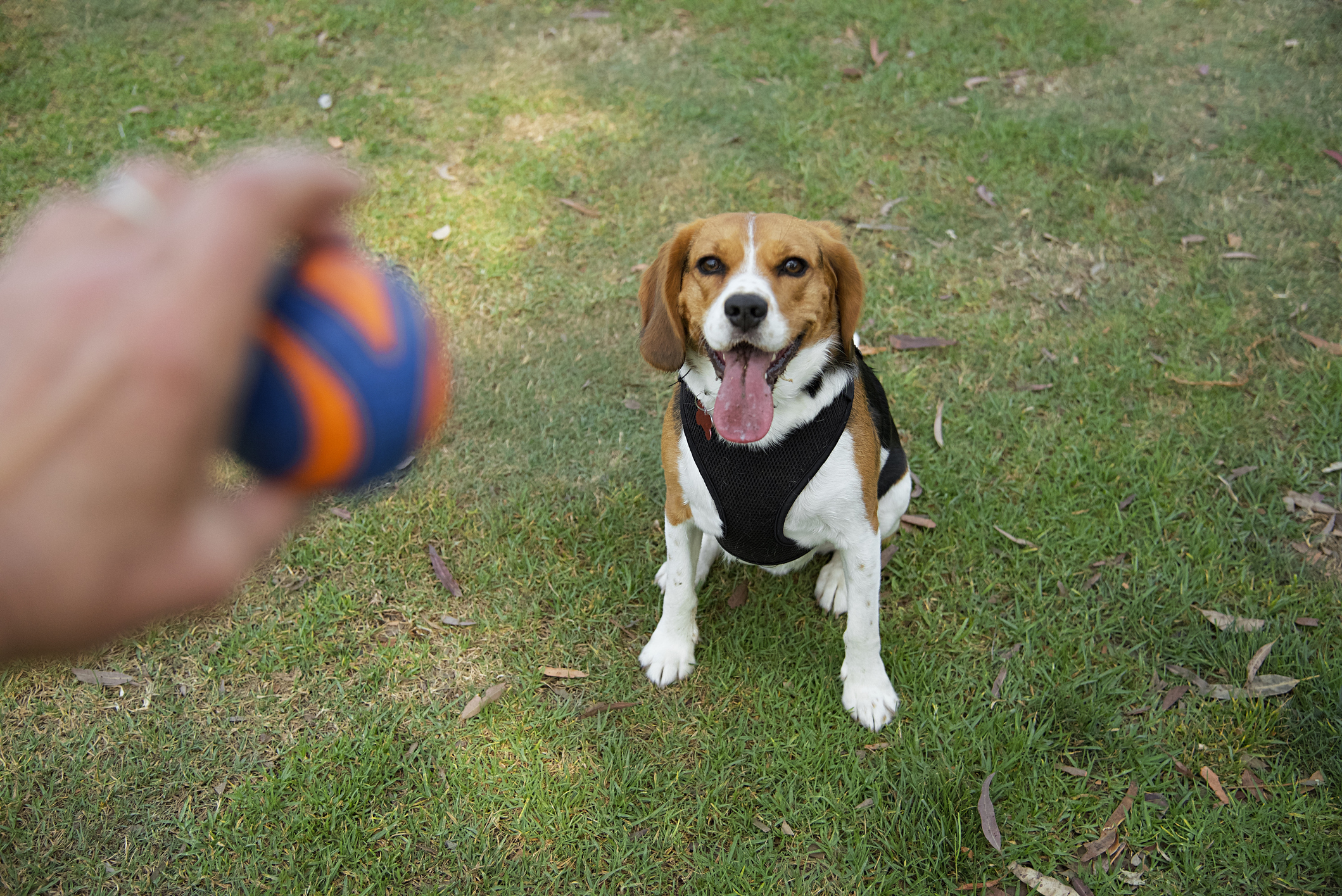How to deal with an older dog starting to show some bad behaviour after many happy years
A-list dog trainer Ben Randall helps a reader whose ageing dog has started changing its behaviour — and not for the better.


Just as people's habits and behaviour can change as they age, so can that of dogs — and that's the issue being faced by this week's reader, who emailed me at paws-for-thought@futurenet.com with tricky problem:
Dear BenMy beautiful Mimi — a 11 year old Maltese Shih tzu — has recently started scratching at both my husband and I. This mostly happens once we go to bed. It can be either of us, both of us, and occasionally she will try to do it to our 3-year-old son if he has come into our bed at night. The strange thing is that it only happens in our bed, and only at night. She has never done this before, and we can't think of anything that has changed which could be the cause: no changes in diet, no changes in routines, no changes in neighbours etc.Some nights it may go on for 15-20 mins but last night it was on and off ALL night! We both woke up feeling like we hadn't slept at all! Why is she doing this and how on earth can we stop her? For context, we have another dog, Coco, and both usually sleep on our bed at night, though Coco sometimes sleeps on a blanket on the floor instead. And we also have two 16-year-old cats, who either sleep in baskets in our room or on the cat tree elsewhere in the house. I would really love to know what we can do so we can all get more sleep! — KM, via email
Thanks for your letter — I've got huge sympathy for you here, since not getting a decent night's sleep is hard.
I'll be honest with you: this is not an easy one to solve, and it's the sort of issue that is hard for me to without seeing or assessing your dog in person. That said, these are the questions to ask yourself, and the suggestions I'd make.
1. Satisfy yourself that there is no medical issue to solve
Before we get to training solutions, it's worth mentioning for others with similar problems that it's worth taking the dog to the vet to make sure there is no underlying medical problem. In your case I'd be very surprised if there were: it's an 11-year-old dog who has obviously been in a good routine for years and has had no changes in circumstances. Dogs scratching or chewing things all the time can be symptoms of physical problems, but if that were the case your dog would be scratching or licking its paws during the day, rather than just at night. It is also possible that a vet might offer calming medication, but I'd strongly advise anyone to only go down that route as a last resort. It's a behaviour issue, it's best addressed that way.
2. Work on your dog's training so that you can get her to stop scratching
To negate the issue, and to try and break this behaviour, you really have to teach your dog the ‘leave’ command — and train it so well that she'll stop what she's doing immediately. This is particularly important if she starts scratching your son again: your dog must start to understand that the word ‘leave’ means 'stop what you’re doing right now'.
I've covered the steps to go through in detail before so do go back and make sure you've got that in place. Until you’ve got a command in place to stop this bad behaviour, then every time your dog scratches without truly understanding that what she's doing is totally not on, you'll compound the problem — and it will become a habit and a way of life.

3. Get your dog a different bed, or a crate — even if it's only temporary
I know what you're probably thinking: that after years sleeping happily on your bed, your dog will not be happy at the idea of sleeping elsewhere. It doesn't have to be on the other side of the house, though: our border terrier has a bed just outside our door.
Exquisite houses, the beauty of Nature, and how to get the most from your life, straight to your inbox.
And on top of that, you should think of this as a firebreak to change a pattern of behaviour, rather than a permanent change. If you get the dog settled in a crate, or in its own bed, for a week, she'll have gone a week without scratching you at night. On top of that, carry on practising the leave command, for you'll need it when she comes back on to the bed.
4. Settle the dog back in — but be prepared that some changes are long term
Once Mimi has been sleeping happily away from your bed for a week or so, and once you're confident that she'll stop scratching the moment you tell her, bring her back into your bedroom once more and hopefully the old behaviour will be forgotten.
But there are no guarantees with this. As I'm sure you know, your dog is entering her twilight years, and just as humans can develop personality quirks, mood changes and other issues as they age, so dogs can start acting in ways that we don't recognise, or doing things that they'd never have done before. It's not dissimilar to the reader dealing with a dog going deaf who I wrote back to recently, and I wish you all the best with it.
For more detailed advice about Ben Randall’s positive, reward-based and proven BG training methods, one-to-one training sessions, residential training or five-star dog-boarding at his BGHQ in Herefordshire, telephone 01531 670960 or visit www.ledburylodgekennels.co.uk. For a free seven-day trial of the Gundog app, which costs £24.99 a month or £249.99 a year, visit www.gundog.app/trial

Credit: Alamy Stock Photo
If only dogs could talk: Reading the minds of Britain's 11 most popular breeds, from Labradors to Westies
Do pooches really take on the characteristics of their so-called owners? Rupert Uloth spoke to some of Britain’s most popular

Dukes and their dogs: Why Britain's aristocracy are just as mad about their canine friends as the rest of us
Stylish canines have long been a duke's or duchess's best friend, as Matthew Denison found out.

Crossbreed dogs: 15 of the best non-pedigree chums, from schnoodle to whoodle
The crossbreed is no longer considered an accident and dog owners are going crazy for these new versions. Emma Hughes
